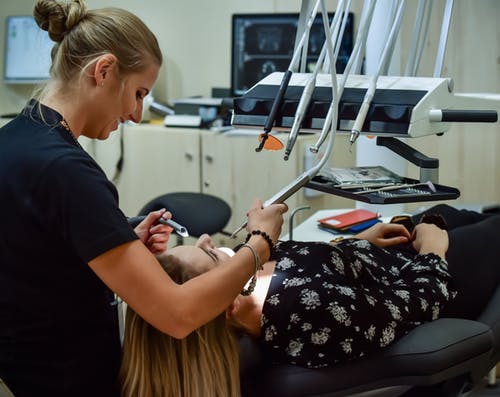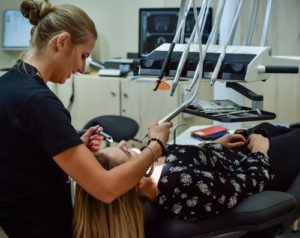Know the Common Oral Problems During Pregnancy
Aside from your regular visits to your gynecologist and trips to the furniture store to prepare the nursery, it is also important to visit your dentist before your baby comes. Your dentist can take care of your regular cleanings and procedures like fillings, while also helping you with pregnancy-related oral problems that you might have. Pregnancy is a crucial time of a woman’s life and maintaining oral health is relative to good overall health.
Even when you are not sure yet, it helps to let your dentist know that you might be pregnant. Inform them how far along you are during your appointment, along with any special medications you are taking or any other special advice given by your gynecologist. High-risk pregnancies or other special cases might necessitate the postponement of some dental treatments.
Oral Problems during Pregnancy
There are women who make it up until their delivery without experiencing any dental discomfort. However, there are times when pregnancy can make oral problems worse, or even pave the development of new ones. Regular checkups and practicing good dental habits can help keep you and your baby in good health.
- Pregnancy gingivitis. Hormonal changes during pregnancy can affect your mouth. Some pregnant women develop a condition called pregnancy gingivitis where the gums become inflamed, causing tenderness and swelling. Your gums may also bleed during brushing and flossing. If left untreated, gingivitis can lead to serious forms of gum disease. Frequent cleanings can help prevent this issue.
- Increased tooth decay risk. There are many reasons why pregnant women are more prone to cavities. The most common is their increased intake of carbohydrates, which can cause decay. Also, morning sickness increases acid exposure in the mouth, which can damage the tooth enamel. Daily brushing and flossing during pregnancy can be problematic for some pregnant women because of morning sickness, tender gums, more sensitive gag reflexes, es, and exhaustion. Still, it is important to keep up your routine because poor habits during pregnancy can lead to intrauterine growth restriction, premature delivery, preeclampsia, and gestational diabetes.
- Pregnancy tumors. Some pregnant women experience an overgrowth of tissue on the gums. Called pregnancy tumors, there usually appear during the second trimester. These are mere swellings that mostly occur between teeth and can be related to excess plaque. They have a red, raspberry-like appearance and bleed easily, and usually disappear after giving birth.
Medications During Pregnancy
Make sure that your dentist is aware of any over-the-counter drugs and prescription medication you are currently taking. This will help your dentist determine the kind of prescription to write for you, should you need any painkillers or antibiotics during pregnancy. Do not hesitate to your physician and dentist any questions you may have about any medications that they may recommend.
Anesthetics During Pregnancy
If you are pregnant and need a tooth pulled, root canal, or filling, you might be worried about the safety of the numbing medications your dentist may use. The good news is that these are safe for you and your baby. A study showed that these kinds of anesthetics are safe during pregnancy, and cause no difference in the rate of birth defects, birth weight, prematurity, or miscarriages. There is no evidence showing that going through a dental treatment with anesthetics is harmful during pregnancy.
Dental X-Rays During Pregnancy
A pregnant woman gets safely gets dental x-rays. The radiation coming from dental x-rays is very low, but your dentist will cover you with a leaded apron that will further minimize exposure to the abdomen. They might also cover your throat with a leaded collar to prevent radiation exposure to your thyroid.






 |
|